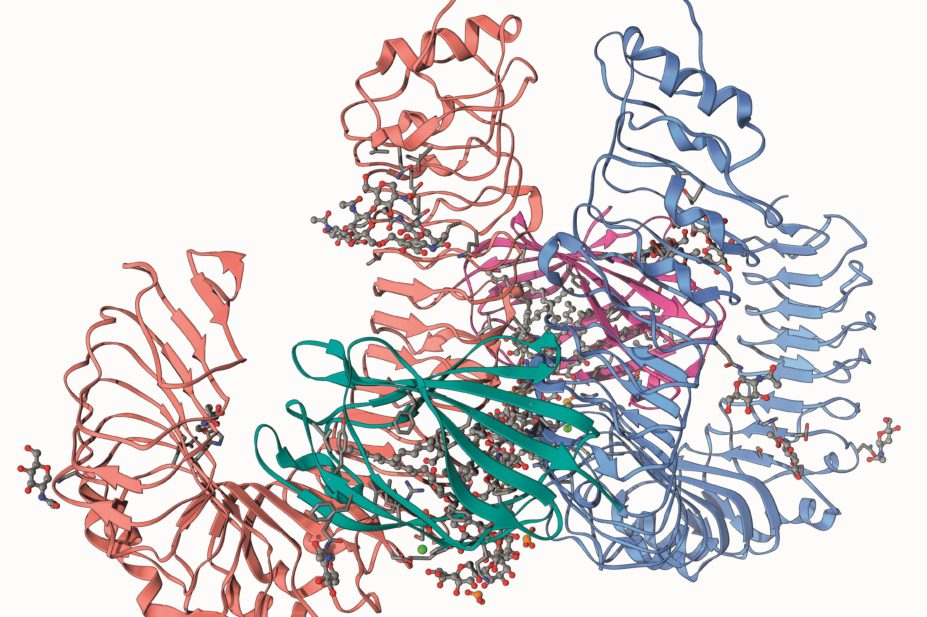
Laguna Design / Science Photo Library
The identification and characterisation of a small molecule that targets protein receptors that initiate the immune system in response to invading pathogens could lead to the development of novel vaccine adjuvants and anti-tumour agents, report researchers.
A research team working across the University of Colorado Boulder and Tsinghua University in Beijing have identified a small molecule, N-methyl-4-nitro-2-(4-(4-trifluoromethyl)phenyl)-1H-imidazol-1-yl)aniline, which they have named CU-T12-9.
They show that CU-T12-9 binds to Toll-like receptor 1 and Toll-like receptor 2 (TLR1 and TLR2), facilitating the heterodimer TLR1-TLR2, which triggers the downstream signalling necessary for an innate immune response.
Too much TLR activation can over stimulate the immune system, and improving the balance between activation and inhibition could optimise a patient’s response to a novel vaccine or anti-tumour drug.
“The TLR protein family has finally become a realistic target for drug developers,” says Hang Hubert Yin, a biochemist at the University of Colorado Boulder involved in the study published in Science Advances
[1]
.
Alongside these potential therapeutic developments, say the research team, the work provides “compelling new insights” into the regulation of TLR1/2 signalling transduction. “To the best of my knowledge, says Yin, “our compound CU-T12-9 represents the first well characterized small molecule TLR1/2 agonist.”
Other drug candidates for inflammatory disorders that target TLRs include TLR4 inhibitors for scleroderma and neuropathic pain, and US biopharmaceutical company Gilead has announced programmes to develop TLR7 activators.
Many of the drugs and drug candidates targeting TLRs are antibody-based, which means they might not always be bioavailable. Using small molecule agents to target large membrane receptors like TLRs has been challenging, says Yin.
The University of Colorado Boulder has filed a patent application for the small molecule agent CU-T12-9 and other toll-like receptor agents they have developed. These have been licensed to different companies for commercialization or drug development. CU-T12-9 is currently licensed to EMD Millipore and Tocris Bioscience and Yin’s team is on the lookout for drug discovery partnerships to further develop these agents.

